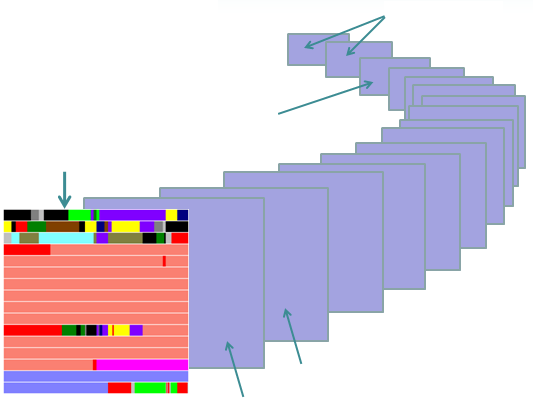- 3 Posts
- 206 Comments

 2·2 years ago
2·2 years agoWell, typically, being married for 60 years would also involve not dying for the past 70+ years…
I don’t think, there’s currently any plans to introduce a non-JS API for accessing the DOM. It would just take an insane amount of implementation work + documentation.
But frameworks can generate access code for you, so you don’t actually need to write any JS yourself. Rust is quite far ahead in this regard, thanks to the
wasm-bindgenlibrary.
I mean, so far, all of them require tons of humanly produced data.
Discriminative AI (deep learning et al) requires humans to label data for hours on end, per use-case.
And generative AI (LLMs et al) require just insane amounts of human works to copy from, albeit not necessarily limited to individual use-cases.I guess, what I’m saying is that the ratio of how much labor humans (involuntarily) invested into AIs, compared to the labor these AIs actually perform, is likely a lot higher than 70%.
It’s a thing here in Europe. I’m guessing, because our walls are generally concrete, we usually either throw on decorative plaster or a wallpaper, to make it feel a bit warmer and have a uniform surface which accepts paint more readily.
It’s even quite common that if you rent an appartment, that the walls have wallpaper on them, which is painted with a fresh coat of white paint every time someone moves out and the next folks move in.
And then some people, after they move in, will just paint (some of) the walls in a different color, if they feel like not living in pure white…

 1·2 years ago
1·2 years agoWell, this isn’t a problem for smaller, less centralized services, so that might be an answer. Obviously not an answer big corporations will bring to the table, but ultimately, it might simply be among the reasons why users do still prefer smaller services.
I have my repos on Codeberg and one of the ‘disadvantages’ is that, well, it’s a non-profit, so I genuinely don’t want to waste their resources.
They ask you to only host open-source repos there, meaning that using it for backups of shitty personal projects, even if I would throw in an open-source license, is just out of the question for me.And that has weirdly been a blessing in disguise. Like, if it’s not useful for humanity to see, do I really care to keep it around forever?
And I’ve had three projects now where I felt an obligation to push them over the finish line of actually making them a useful open-source project. Which had me iron out some of the usability shortcuts I took, made me learn a good amount of code quality stuff and of course, just feels good to complete.
Ah, true. Thanks.
Theoretically, it was supposed to be pseudo-code, secretly inspired by Rust, but I did get that one mixed up.
And I am actually even a fan of the word
unwrapthere, because it follows a schema and you can have your IDE auto-complete all the things you can do with anOption.
In many of these other languages, you just get weird collections of symbols which you basically have to memorize and which only cover rather specific uses.
I enjoy this:
return a.or(b);But yeah, that requires an
Optiontype rather thannullpointers…

 16·2 years ago
16·2 years agoYeah, and from what I understand, learning the language itself isn’t the hard part. It actually has rather few concepts. What’s difficult, is learning how to program a computer correctly without all the abstractions and safety measures that modern languages provide.
Even structured programming had to be added to COBOL in a later revision. That’s if/else, loops and similar.
If you type “about:profiles” into the URL-bar and create a fresh profile there, does it also happen in that?
(It will practically be like a factory-reset Firefox, except you can go back to your current data/profile.)
It hails back to the early days of the ampersand, from when it was basically still just Latin “et”: https://commons.wikimedia.org/wiki/File:Trebuchet_MS_ampersand.svg
Personally, I do like this font (Fira Mono+Sans), because it still looks professional, without being so boring that I get depression from looking at it.
But yeah, that ampersand is pushing it a bit, as I’m not sure everyone else knows that’s an ampersand…
Well, openSUSE did it long before everyone else. So, Debian, Fedora, Arch?
I would kind of be surprised by Fedora, too, as I thought, they shipped out-of-the-box automatic snapshotting, but the comment from @bruhduh@lemmy.world sounds like that is still a problem…
Yeah, I meant, as an attacker, you couldn’t come up with a similarly unreadable version.
At least, as far as I can tell, defining a function requires spelling out
functionand seems to require being defined on multiple lines, too.
What that garble of symbols does, is that it defines and calls a function named
:, which calls itself twice.The syntax for defining a function is different in Fish, so no, this particular garble will not work:

But it is, of course, possible to write a (much more readable) version that will work in Fish.

 2·2 years ago
2·2 years agoSee “What are my options if I want to install unsigned extensions in Firefox?” in the FAQ here: https://wiki.mozilla.org/Add-ons/Extension_Signing#FAQ
If you’re on Linux, you may have that about:config flag even in your distro-provided Firefox Stable build…
In my experience, it strongly depends. In my team at work, the biggest Linux nerd is on GNOME, basically because he doesn’t care where his TMUX session runs.
And I’m the guy with the most elaborate desktop workflow (tiling and 40+ virtual desktops among other aspects) and I wouldn’t want to use anything but KDE, because nothing else has as many features + customizability to support me in that workflow.But yeah, both of us started out on such mainstream desktops, then spent multiple years checking out all other desktops and eventually found different paths back to the mainstream.
The rainbow not enough for you? 🙃







I feel like most of the layoffs and the flooded market happened in the US. Judging by the name, bleistift is from the EU…